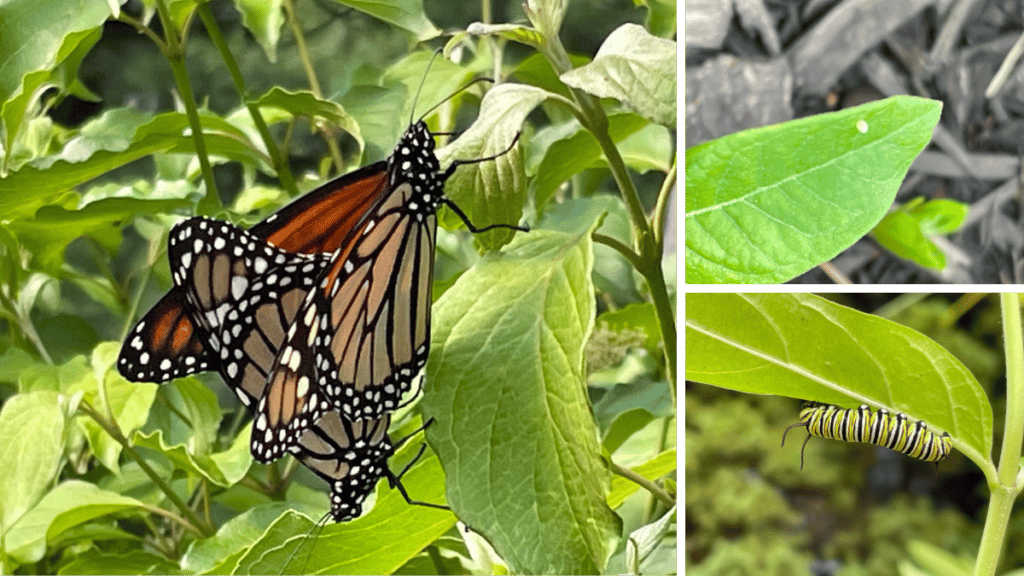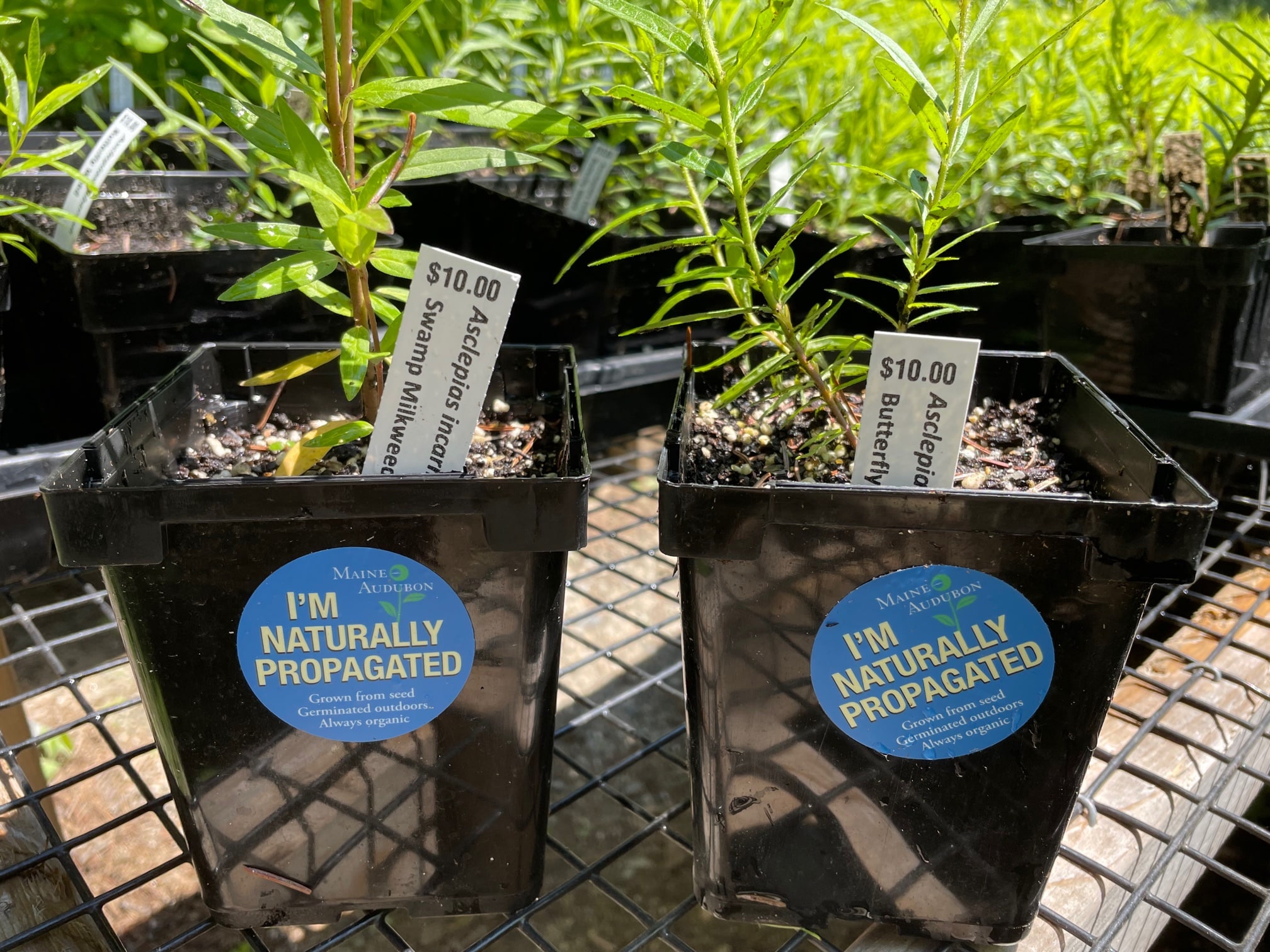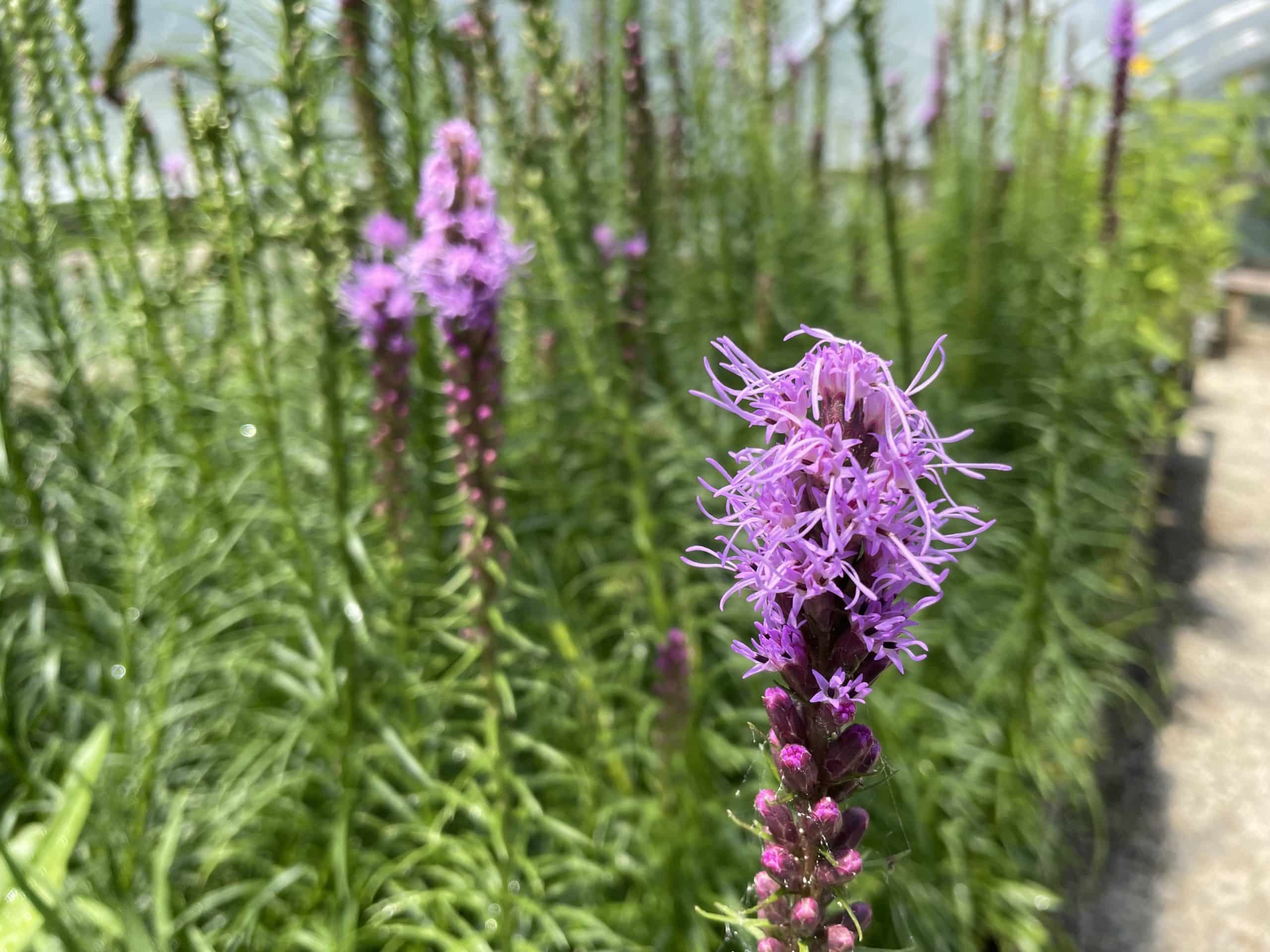
August 2021 Plants Sale Update: Make the dog days of this summer about cats — caterpillars that is!
August 1 always marks the halfway point of what we consider Maine’s growing and planting season (May 15 to October 15), essentially the five-month space between hard frosts. This year, the rainy July has sure kept things green and blooming, and the Maine Audubon nursery remains bursting with tons of Maine native perennials, grasses, trees, and shrubs. We’ve chosen every species we grow for its ability to host insect reproduction, which in turn is critical to breeding birds. Summer is when reproduction for the broadest range of taxa peaks, and when planting can be most immediately rewarding. What follows are just a few highlights of what’s hot in our native plants nursery right now. As always, visit shop.mainenativeplants.org for up-to-the-minute inventory info.
Monarchs have arrived and are laying eggs
The third or fourth generation of butterflies that bred their way here from Mexico has been arriving in Maine to find mates and milkweed upon which to lay their eggs. If you’re not already growing milkweed, now is the perfect time to start. Maine Audubon has two non-spreading species for sale, Butterflyweed and Swamp Milkweed, which are just as beneficial to Monarch caterpillars as their aggressively spreading cousin. I find the new younger shoots of milkweeds to be more attractive than plants that have bloomed and faded, so you might consider a supplemental planting if you aren’t seeing caterpillars.
Speaking of Monarchs in Maine, don’t forget the late bloomers like goldenrods and asters, too. If you are hosting Monarch reproduction, the butterflies that emerge here will need nectar, lots of nectar for their arduous journey southwest this fall. Maine Audubon has you and them covered with beautiful and well-behaved late bloomers such as New England Aster and Blue-stemmed Goldenrod. This year, we’ve added new species of both aster (White Heath Aster) and goldenrod (Silverrod) to help extend your bloom season and palette.
Grown from seed by Maine Audubon

August is the perfect time for buying Maine Audubon’s seed grown species. Our natural propagation methods include sustainably-sourced seeds, outdoor sowing, and only organic soils and supplements. Look for the Seed Grown tab on the plant sales website and the Naturally Propagated stickers on the pots to know that your plants got Maine Audubon TLC from seed. In particular, Nikki Oteyza, our landscape and gardening intern, has hundreds of seed-grown milkweeds ready to be laid and munched on by Monarchs and other native insects near you.
Featured new species: Liatris spicata

If you’ve read earlier blogs this summer, you know that Maine Audubon has expanded our sales to include certain species we and others deem to be useful in helping Maine’s wildlife and landscapes be more resilient to climate change. We are already seeing ranges of birds and other wildlife expanding north and east, which has brought us Northern Cardinal, Carolina Wren, and other “new” year-round Maine residents that you didn’t see on January birding records twenty years ago. It’s easier to justify growing and planting species whose historic range is a zone or two south of us. We’re also highly susceptible to striking beauty and unique forms, so revisiting certain species through the climate resiliency lens has been particularly rewarding. This picture of our Dense Blazing Star blooming now in our hoop house says it all.
Liatris spicata has a huge native range that is a little west of us, but extends far south and north. This midsummer bloomer is an absolute magnet for pollinators, especially bumblebees, and we are literally hearing this species buzzing from across our hoop house like no other that we grow. It’s preferred home habitat is wet, but like so many of the species we grow, most decent garden soils do fine holding enough moisture for Liatris to thrive. Pick up one or two of these for your corner of Maine this summer, and tell us if the bumblebees thank you for it similarly.
Great work so far this summer, everyone! Let’s keep planting and restoring habitat through the whole growing season this year….
